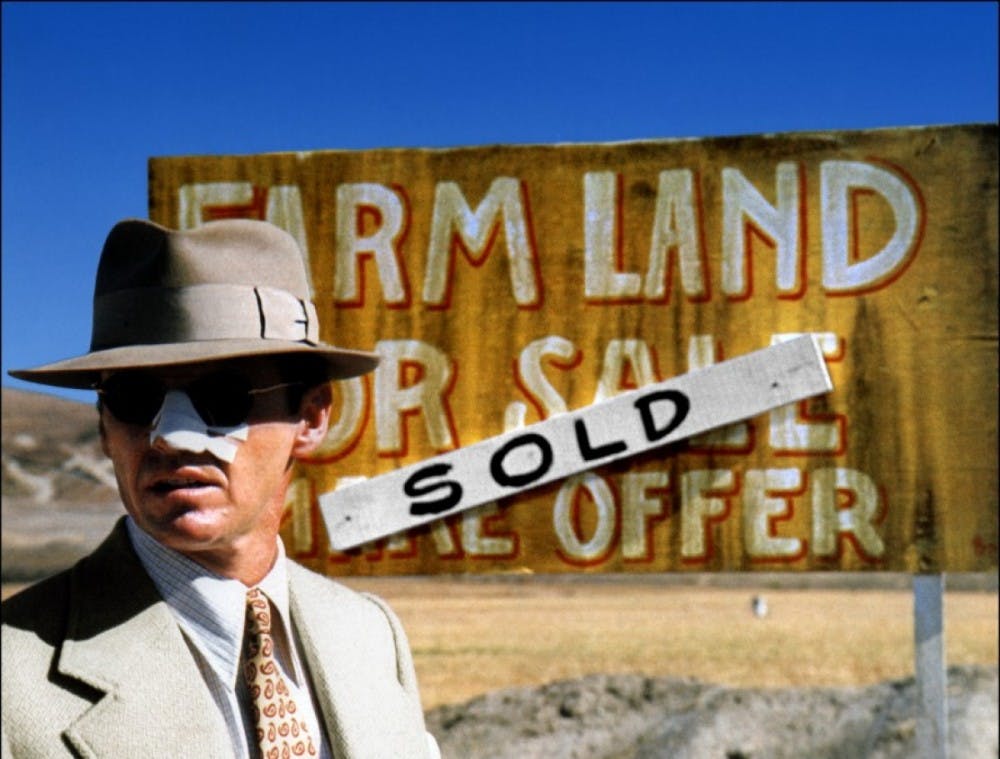Nearly every element of “Chinatown” is exceptional.
There is not a shoddy contribution from the writer, director or actors. They all help bring the world of 1937 L.A. to vivid life and create a tapestry of greed, corruption and failed acts of kindness.
This movie centers on private investigator J.J. “Jake” Gittes. After a man he is investigating turns up dead, Gittes teams up with his widow to discover a conspiracy involving L.A.’s water supply and the widow’s sinister father.
One of my favorite things about “Chinatown” is its attention to detail. The briefest of pauses can turn out to be a vital clue, or a minor character can have an unexpectedly essential role to play.
This gives you a more active viewing experience, because it places you in Gittes’ shoes as you try to figure out what information is and is not important.
The dialogue for this movie is snappy and funnier than one would expect.
Screenwriter Robert Towne wrote this movie after he turned down a $125,000 offer to write an adaptation of “The Great Gatsby.” Instead, he accepted $25,000 to write the script for “Chinatown.” He would go on to receive an Academy Award for it, and the knowledge that his screenplay for “Chinatown” is now regarded as one of the greatest ever written.
Roman Polanski’s direction of this movie manages the high-wire act of making the complex plot seem accessible, while also making the twists feel shocking and unpredictable. In addition, Polanski has a fun cameo as the criminal with a knife who threatens Gittes.
From a technical standpoint, this movie is next to flawless.
Cinematographer John A. Alonzo consistently delivers interesting shot compositions and editor Sam O’Steen keeps everything moving at a relaxed and steady pace. The combined effect of this technical excellence gives off a great air of confidence that makes “Chinatown” even more enjoyable to watch.
I’ve never understood why Jack Nicholson was such a well-regarded actor before I saw this movie.
I enjoyed his performance in “Batman,” but I mainly knew him as a personality. His performance in “Chinatown,” though, is one for the ages.
In particular, his dead-eyed stare in response to the movie’s bleak conclusion is one of the most heartbreaking facial reactions given by an actor in a movie.
My favorite performance in this film is given by Faye Dunaway as Evelyn Mulwray.
This might sound excessive or cliched, but every choice she makes as an actor is fascinating to watch. Legendary director John Huston delivers an increasingly frightening performance as her father, Noah Cross.
“Chinatown” is a brilliant movie that crackles with intelligent filmmaking. Everyone fires on all cylinders to create something memorable. You won’t forget it.
Jesse Pasternack
jpastern@indiana.edu @jessepasternack




